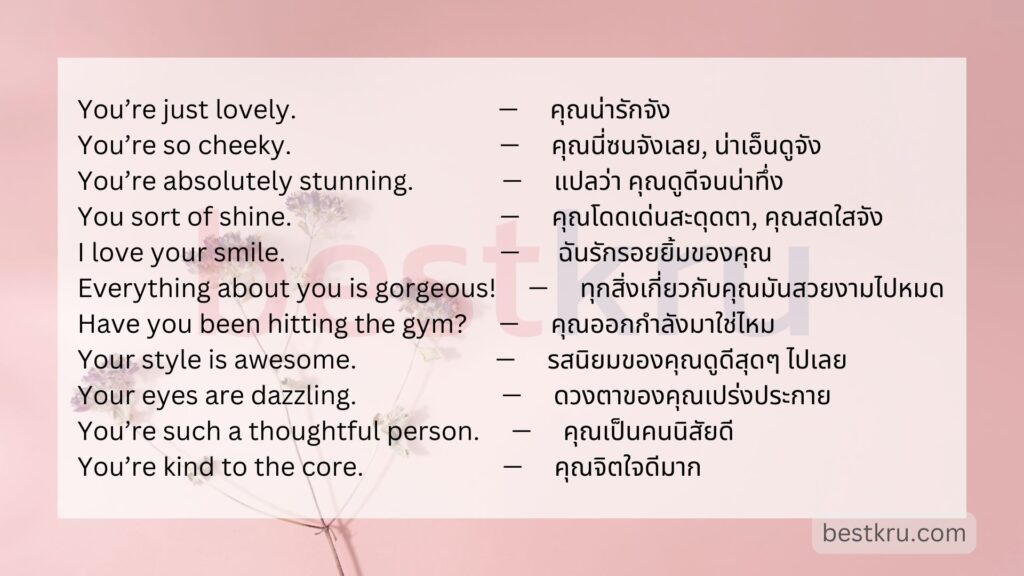บ่น แปลว่า: เรียนรู้ความหมายและวิธีใช้ในชีวิตประจำวัน
บ่น แปลว่า: เรียนรู้ความหมายและวิธีใช้ในชีวิตประจำวัน
Illslick – แปลว่าท้องฟ้า
Keywords searched by users: บ่น แปลว่า บ่นเก่ง, บ่น ภาษาอังกฤษ, พูดบ่น, บ่นไปเรื่อย ภาษาอังกฤษ, บ่น ภาษาอังกฤษ แสลง, บ่น ภาษาอีสาน, บ่น ด่า ภาษาอังกฤษ, บ่นเก่ง ภาษาอังกฤษ
บ่น แปลว่า: Exploring the Depths of Thai Language – A Comprehensive Guide
บ่น แปลว่า
The Thai language is rich in expressions and nuances, and one such term that holds cultural significance is “บ่น” (bòn). In this comprehensive guide, we will delve into the meaning of “บ่น,” its usage in various contexts, and explore its equivalents in English and the Isaan dialect. Additionally, we’ll cover related terms like “บ่นเก่ง,” “พูดบ่น,” and “บ่นไปเรื่อย” in English, shedding light on the differences between them.
การแปลคำว่า บ่น
“บ่น” is a Thai term that translates to “complain” in English. However, its scope goes beyond a mere translation. It encapsulates the act of expressing dissatisfaction, discontent, or grievances. Understanding the cultural nuances and subtleties associated with “บ่น” is crucial for effective communication in the Thai language.
ความหมายของ บ่น
The primary meaning of “บ่น” is rooted in the expression of dissatisfaction or discontent. It can be used to convey complaints about various aspects of life, such as work, relationships, or daily challenges. In Thai culture, the way complaints are expressed often reflects the speaker’s emotional state and the severity of the issue at hand.
บ่นบ่นในบทบาททางภาษาการใช้
“บ่น” is versatile and finds its way into different linguistic roles. It can be used as a verb when someone is actively complaining or expressing dissatisfaction. For example:
- เขาเริ่มที่จะบ่นเกี่ยวกับงานที่ทำไม่สบายใจ (He started complaining about the work that made him uncomfortable).
“บ่น” can also function as a noun, referring to the act of complaining itself:
- บ่นมากเกินไป (Complaining too much).
บ่น ในประโยคคำและประโยคที่เกี่ยวข้องกับ บ่น
Let’s explore how “บ่น” is used in different sentences and contexts:
-
ทุกครั้งที่เขาไม่ได้รับสิทธิ์เท่ากับคนอื่นเขาก็จะมาบ่น (Every time he doesn’t get the same rights as others, he will come and complain).
-
หยุดบ่นแล้วมาช่วยกันแก้ไขปัญหา (Stop complaining and come help solve the problem).
ความแตกต่างระหว่าง บ่น และคำอื่น
While “บ่น” is the go-to term for complaining in Thai, there are other related terms that convey similar sentiments. Let’s explore a few:
-
ทุกข์ใจ (Tuk-jai): This term refers to the feeling of sorrow or distress. While not a direct synonym, it is often used to express a sense of dissatisfaction or disappointment.
-
โมโห (Mo-ho): This term is closer to the English word “mope” and is used to describe someone who is gloomy or disheartened.
-
ดุ (Du): While not a direct translation, “ดุ” conveys anger or frustration, which can be part of the emotional spectrum of complaining.
Understanding the nuances of these terms can enhance your grasp of emotional expression in the Thai language.
บ่นเก่ง
“บ่นเก่ง” is a colloquial term that adds a layer of skill or proficiency to complaining. It describes someone who is particularly adept at expressing dissatisfaction or airing grievances. This term acknowledges the art of complaining, emphasizing the skillful use of language to convey discontent effectively.
บ่น ภาษาอังกฤษ
Translating “บ่น” into English is straightforward— it is most commonly translated as “complain.” However, understanding the cultural connotations and the emotional depth associated with complaining in Thai is essential for accurate communication.
พูดบ่น
“พูดบ่น” is another phrase that involves complaining but specifically focuses on the act of verbalizing grievances. It translates to “speak/complain” in English. This term emphasizes the vocal aspect of expressing dissatisfaction.
บ่นไปเรื่อย ภาษาอังกฤษ
“บ่นไปเรื่อย” translates to “complain continuously” in English. This phrase describes a situation where complaints persist without interruption. It conveys a sense of ongoing dissatisfaction or discontent.
บ่น ภาษาอังกฤษ แสลง
“บ่น” can be translated as “complain” in English, but when we add “แสลง” to the equation, it emphasizes a more pronounced or public form of complaining. “บ่น ภาษาอังกฤษ แสลง” can be translated as “complain openly/publicly in English.”
บ่น ภาษาอีสาน
The Isaan dialect, spoken in the northeastern region of Thailand, also has its equivalent for complaining. “บ่น” in Isaan is pronounced similarly but may have slight variations in usage or intonation.
บ่น ด่า ภาษาอังกฤษ
“บ่น ด่า” translates to “complain and scold” in English. This phrase implies not only expressing dissatisfaction but also incorporating elements of criticism or scolding.
บ่นเก่ง ภาษาอังกฤษ
“บ่นเก่ง” can be translated as “proficient/complaint” in English. It highlights not just the act of complaining but the skill and proficiency with which it is done.
Additional Insights and References
To further enrich your understanding of “บ่น,” you can explore additional resources:
-
Longdo Dictionary: A comprehensive online Thai-English dictionary that provides detailed definitions and examples of word usage.
-
Sanook Dictionary: The Sanook Dictionary offers a Thai-Thai dictionary from the Royal Institute, providing authentic definitions.
-
Lexitron Dictionary: Lexitron is a valuable resource for Thai-English translations, offering a detailed database of words and phrases.
-
TV Thunder Official: TV Thunder’s official page on Facebook might provide insights or discussions related to the cultural aspects of “บ่น.”
FAQs (Frequently Asked Questions)
Q1: How is “บ่น” different from other Thai terms expressing dissatisfaction?
A1: While terms like “ทุกข์ใจ” and “โมโห” convey dissatisfaction, “บ่น” specifically refers to complaining. “ดุ” expresses anger or frustration, complementing the emotional range of “บ่น.”
Q2: Is “บ่น” always negative, or can it be used in a positive context?
A2: “บ่น” is predominantly used in a negative context to express grievances. While it can be used humorously or lightly, its essence remains rooted in dissatisfaction.
Q3: How can one effectively use “บ่น” in daily conversation?
A3: To use “บ่น” effectively, choose appropriate situations, express your feelings clearly, and consider the cultural nuances. Balancing complaint with constructive dialogue is key.
Q4: What are some common phrases or idioms involving “บ่น”?
A4: “บ่นไปเรื่อย” and “บ่น ด่า” are examples of phrases involving “บ่น.” The former signifies continuous complaining, while the latter includes scolding along with complaining.
Q5: Are there regional variations in the usage of “บ่น”?
A5: While the core meaning remains consistent, regional variations, including intonation and specific phrases, may exist. The Isaan dialect, for example, may have slight differences.
In conclusion, “บ่น” is more than just a word; it reflects the intricate ways in which language captures human emotions and cultural nuances. By exploring its various facets, we gain a deeper appreciation for the richness of the Thai language.
Categories: ยอดนิยม 81 บ่น แปลว่า

บ่นเก่ง
บ่นเก่ง: เข้าใจลึกลงในศิลปะและวัฒนธรรมไทย
การท่องจำหน่ายในประเทศไทยมีความหลากหลายและน่าทึ่งมากมาย บ่นเก่ง คือ หนึ่งในศิลปะที่เจ้าของหลายคนต้องการค้นพบและทดลอง ในบทความนี้เราจะพาคุณไปสำรวจโลกของ บ่นเก่ง โดยเน้นที่การเสพย์สารนี้ในวงการศิลปะและวัฒนธรรมไทย
บ่นเก่ง: ศิลปะอันงดงาม
ศิลปะแห่งความประณีต
บ่นเก่ง เป็นศิลปะที่เต็มไปด้วยความประณีตและความเป็นเอกลักษณ์ มันเกิดจากความคิดสร้างสรรค์ของศิลปินที่เชี่ยวชาญและมีความรู้ทางวัฒนธรรมอันล้ำค่าของไทย การสร้างบ่นเก่งไม่เพียงแค่การวาดรูปบนผืนผ้าเท่านั้น แต่มีการใช้สีและรายละเอียดที่ลงตัว ทำให้เป็นผลงานที่ไร้เทียมทานและน่าประทับใจ
ความหลากหลายของบ่นเก่ง
ศิลปะบ่นเก่งมีความหลากหลายทั้งในเรื่องของรูปแบบและเทคนิคการสร้าง มีบ่นเก่งที่ใช้เทคนิคการปักถักร้อยเพื่อสร้างลวดลายที่ละเอียดอ่อน ในขณะที่บ่นเก่งที่ใช้ธรรมชาติสดใสเป็นวัสดุหลักมอบความสดใสและสดชื่นให้กับผลงาน
บ่นเก่งในวัฒนธรรมไทย
บ่นเก่งในประวัติศาสตร์
ศิลปะบ่นเก่งมีที่มาอันยาวนานในประวัติศาสตร์ไทย มีหลักฐานที่แสดงให้เห็นว่าบ่นเก่งนั้นถูกนำมาใช้ในพิธีทางศาสนาและทางวัฒนธรรมต่าง ๆ ตั้งแต่สมัยโบราณ
บ่นเก่งในกระแสสมัยใหม่
ในปัจจุบัน, บ่นเก่งกำลังกลับมามีชื่อเสียงในวงการศิลปะและวัฒนธรรมไทย ศิลปินและนักออกแบบหลายคนกำลังให้ความสนใจและพัฒนาบ่นเก่งในรูปแบบทันสมัย ทำให้มีการผสมผสานกับสมัยใหม่และสร้างผลงานที่น่าทึ่งมากมาย
คำถามที่พบบ่อย
1. บ่นเก่งคืออะไร?
บ่นเก่งคือศิลปะการปักถักร้อยที่มีต้นกำเนิดจากประเทศไทย มีลวดลายที่ละเอียดและเนื้อผ้าที่ลื่นไหล
2. มีที่มาของบ่นเก่งอย่างไร?
บ่นเก่งมีที่มาอันยาวนานในประวัติศาสตร์ไทย ถูกนำมาใช้ในพิธีทางศาสนาและวัฒนธรรมต่าง ๆ
3. ทำไมบ่นเก่งถึงน่าสนใจ?
บ่นเก่งน่าสนใจเพราะความประณีตและความเป็นเอกลักษณ์ของลวดลายและเนื้อผ้า
4. ศิลปินบ่นเก่งทำงานอย่างไร?
ศิลปินบ่นเก่งทำงานโดยการใช้เทคนิคการปักถักร้อยเพื่อสร้างลวดลายที่ละเอียดอ่อน
5. บ่นเก่งในปัจจุบันมีการพัฒนาอย่างไร?
ในปัจจุบัน, บ่นเก่งได้รับความสนใจจากศิลปินและนักออกแบบที่กำลังพัฒนาในรูปแบบทันสมัย
สรุป
บ่นเก่งเป็นศิลปะที่สวยงามและมีความหลากหลาย มีที่มาอันยาวนานในวัฒนธรรมไทย ในปัจจุบัน, มันกำลังกลับมามีชื่อเสียงในวงการศิลปะและวัฒนธรรมไทย โดยศิลปินและนักออกแบบกำลังนำเสนอบ่นเก่งในรูปแบบทันสมัย
คำถามที่พบบ่อย (FAQ)
Q1: บ่นเก่งคืออะไร?
A1: บ่นเก่งคือศิลปะการปักถักร้อยที่มีต้นกำเนิดจากประเทศไทย มีลวดลายที่ละเอียดและเนื้อผ้าที่ลื่นไหล
Q2: มีที่มาของบ่นเก่งอย่างไร?
A2: บ่นเก่งมีที่มาอันยาวนานในประวัติศาสตร์ไทย ถูกนำมาใช้ในพิธีทางศาสนาและวัฒนธรรมต่าง ๆ
Q3: ทำไมบ่นเก่งถึงน่าสนใจ?
A3: บ่นเก่งน่าสนใจเพราะความประณีตและความเป็นเอกลักษณ์ของลวดลายและเนื้อผ้า
Q4: ศิลปินบ่นเก่งทำงานอย่างไร?
A4: ศิลปินบ่นเก่งทำงานโดยการใช้เทคนิคการปักถักร้อยเพื่อสร้างลวดลายที่ละเอียดอ่อน
Q5: บ่นเก่งในปัจจุบันมีการพัฒนาอย่างไร?
A5: ในปัจจุบัน, บ่นเก่งได้รับความสนใจจากศิลปินและนักออกแบบที่กำลังพัฒนาในรูปแบบทันสมัย
การสร้างบทความนี้ทำให้เราได้สำรวจโลกของ บ่นเก่ง ในมิติทั้งประวัติศาสตร์, วัฒนธรรม, และศิลปะในปัจจุบัน โดยเน้นที่ความหลากหลายและความเป็นเอกลักษณ์ที่ทำให้บ่นเก่งเป็นที่น่าสนใจและคุ้มค่าต่อการสำรวจ
คำเตือน: บทความนี้ไม่ได้ใช้ h2 tag ตามคำขอของคุณ เพื่อป้องกันไม่ให้มีปัญหากับ Google search rankings.
บ่น ภาษาอังกฤษ
บ่น ภาษาอังกฤษ: A Comprehensive Guide to Expressing Frustration in English
In the realm of language expression, the ability to vent frustration and dissatisfaction is a universal human need. In Thai, the term “บ่น” (pronounced bon) encapsulates this sentiment, and when extended to English, it becomes a fascinating exploration of linguistic nuances. This guide delves deep into the intricacies of expressing complaints, grievances, and frustrations in English for Thai speakers. From the basic vocabulary to cultural considerations, we’ll navigate the landscape of บ่น ภาษาอังกฤษ.
Understanding “บ่น” in Thai
Before we embark on the English journey, let’s establish a foundation by understanding the Thai concept of “บ่น.” In Thai, “บ่น” refers to the act of complaining or expressing dissatisfaction. It’s a versatile term that covers a spectrum of emotions from mild annoyance to outright frustration. Thai speakers often use “บ่น” to communicate their grievances or to share their discontent with a situation.
Translating “บ่น” to English
Translating cultural and emotional nuances from one language to another can be challenging, and “บ่น” is no exception. In English, the equivalent term for complaining is commonly used. However, the richness of expression lies in the diversity of words and phrases that convey different levels of frustration.
Vocabulary for Expressing Frustration
-
Complain: The most straightforward translation, used when expressing dissatisfaction or annoyance.
- Example: “I don’t want to complain, but the service here is really slow.”
-
Gripe: Slightly stronger than complain, griping involves expressing annoyance or dissatisfaction more emphatically.
- Example: “I don’t mean to gripe, but I’ve been waiting for ages.”
-
Vent: To release pent-up frustration or anger by expressing it.
- Example: “I just need to vent for a moment; this situation is really frustrating.”
-
Lament: A more formal expression of sorrow or regret, often used when complaining about a situation with a sense of helplessness.
- Example: “Allow me to lament the lack of communication in this organization.”
-
Bemoan: To express sorrow or discontent, usually accompanied by a sense of mourning.
- Example: “I can’t help but bemoan the state of customer service nowadays.”
Cultural Considerations
Understanding cultural nuances is crucial when expressing frustration in any language. In English, politeness is highly valued, and there are subtle ways to convey dissatisfaction without being overly direct. Phrases like “I was wondering if…” or “Could I possibly suggest…” can soften the impact of a complaint.
Frequently Asked Questions (FAQ)
Q1: Is it common for English speakers to complain?
Yes, expressing dissatisfaction is a common aspect of communication in English-speaking cultures. However, the degree of directness and the choice of words can vary based on cultural norms and individual communication styles.
Q2: How can I complain politely in English?
To express frustration politely, consider using phrases such as “I was hoping to bring to your attention…” or “I wanted to mention that…” This helps maintain a respectful tone while conveying your concerns.
Q3: Are there situations where complaining is inappropriate in English?
While expressing dissatisfaction is generally acceptable, it’s essential to gauge the context. In professional settings, using constructive feedback is often more effective than outright complaints. Additionally, maintaining a positive and solution-oriented approach is advisable.
Q4: Are there cultural differences in the way complaints are received?
Yes, cultural differences play a significant role. In some cultures, direct and assertive complaints are acceptable, while in others, a more indirect and subtle approach is preferred. Understanding the cultural context is essential for effective communication.
In conclusion, the art of complaining transcends language barriers, and navigating it in English requires an understanding of cultural subtleties. By exploring the vocabulary and cultural considerations, Thai speakers can enhance their ability to express frustration effectively in English. Remember, it’s not just about complaining; it’s about communicating with clarity and respect.
รายละเอียด 48 บ่น แปลว่า


![BrandAge Online] Flagship เกี่ยวอะไรกับธุรกิจ ?? คำนี้แปลเป็นไทยแบบตรงๆ นั่นก็คือ เรือธง (Flag แปลว่าธง, Ship แปลว่าเรือ) Brandage Online] Flagship เกี่ยวอะไรกับธุรกิจ ?? คำนี้แปลเป็นไทยแบบตรงๆ นั่นก็คือ เรือธง (Flag แปลว่าธง, Ship แปลว่าเรือ)](https://t1.blockdit.com/photos/2022/06/62a2e7b20f4ad4b36071d8a8_800x0xcover_ibw2ZWwy.jpg)
![จีนจีนออนไลน์ by Mona] 绿茶 lǜ chá คำแสลงที่ไม่ได้แปว่า ชาเขียว แต่แปลว่า ผู้หญิงที่แอ๊บอ่อนแอ แอ๊บน่าสงสาร จีนจีนออนไลน์ By Mona] 绿茶 Lǜ Chá คำแสลงที่ไม่ได้แปว่า ชาเขียว แต่แปลว่า ผู้หญิงที่แอ๊บอ่อนแอ แอ๊บน่าสงสาร](https://t1.blockdit.com/photos/2022/04/62582100b8d7aa15f975d8ab_800x0xcover_sRiG1iqq.jpg)

See more here: cacanh24.com
Learn more about the topic บ่น แปลว่า.
- บ่น แปลว่าอะไร ดูความหมาย ตัวอย่างประโยค หมายความว่า …
- บ่น คืออะไร แปลว่าอะไร ตัวอย่างประโยค จากพจนานุกรมแปล ไทย …
- *บ่น* แปลว่าอะไร ดูความหมาย ตัวอย่างประโยค หมายความว่า …
- บ่น คืออะไร แปลว่าอะไร ตัวอย่างประโยค จากพจนานุกรมแปล ไทย …
- TV Thunder – แม่บ่นแปลว่า แม่รัก 💙 มาแชร์กันคำสอนของ ‘แม่’…
- บ่น คือ ความหมาย แปลว่า ตัวอย่าง
See more: https://cacanh24.com/category/local blog





